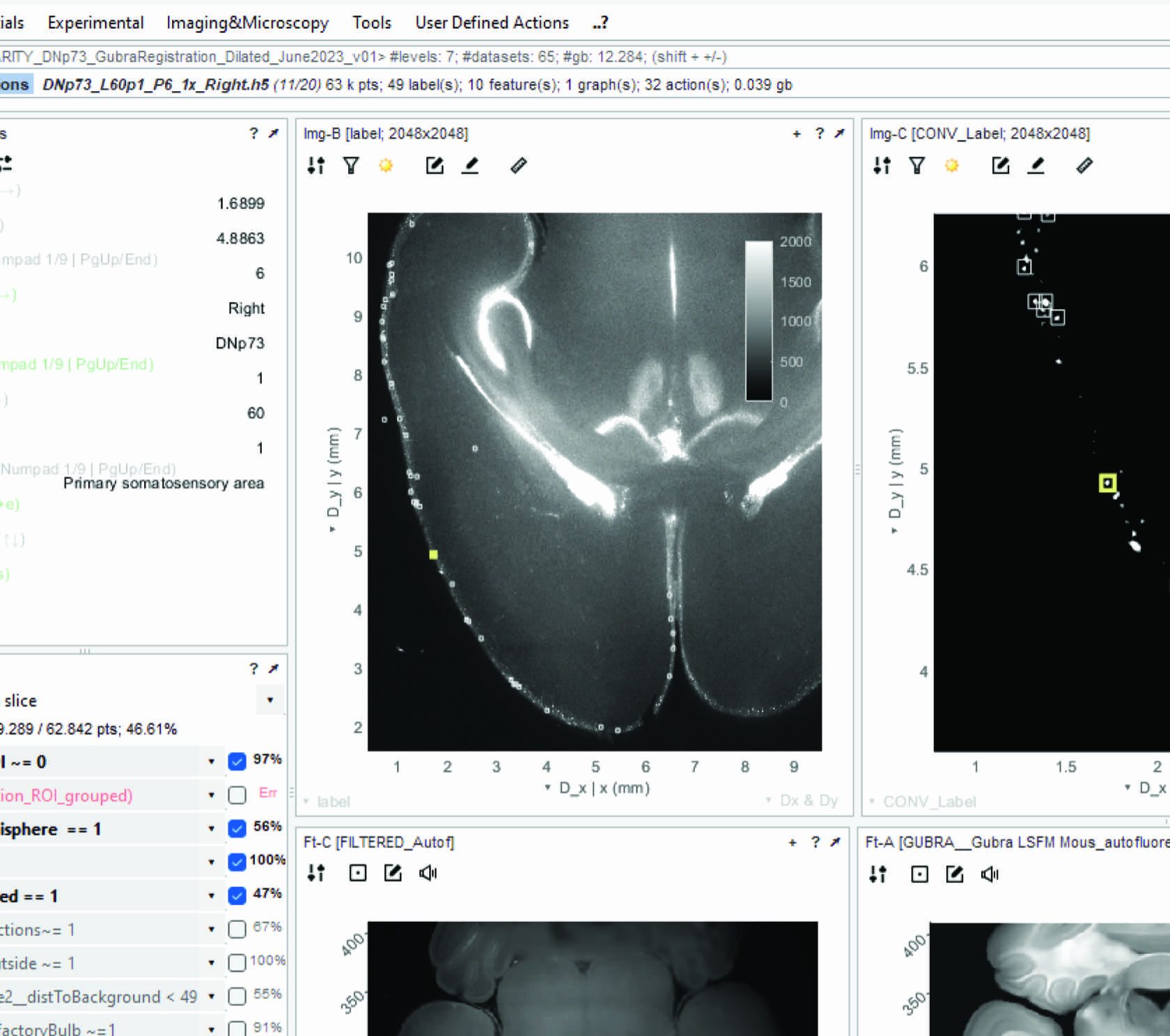Navigation auf uzh.ch
Navigation auf uzh.ch
Our work at the high-dimensional data analysis (HDDA) platform is based on the assumption that a substantial part of data analysis tasks in neuroscience and beyond can be broken down to a relatively small number of primitives. These primitives are made available to combine in a Lego-like setting within a graphical user interface (GUI) combined with an underlying data-science programming platform. This software package (GUI and underlying platform) is called Dataspace (dspace) and has been conceived of and developed in the last years at ETHZ and UZH by Sepp Kollmorgen, who is now the platform manager. In dspace, code-based workflows and GUI-based workflows ideally merge seamlessly, enabling analyses without coding but also integration with users’ existing code and analysis pipelines at maximal ease. Data in dspace and expansions of dspace can be easily shared. The dspace software, dspace documentation, associated services and materials are currently available in-house to researchers of the URPP AdaBD. We also plan to release a publicly available version of dspace.


In 2022 und 2023, in collaboration with several research groups in and outside the URPP AdaBD, we significantly improved the structure and design of dspace and added capabilities that extend dspace to new forms of data, including light-sheet microscopy data (in particular data produced by the mesoSPIM platform), and behavioural and neural data (i.e. unimodal und multimodal time series data), including, but not limited to, video-, audio-, electrophysiology-, 2-photon-imaging-data, as well as, more generally, data held in the Datajoint- or other table-based-formats. Dspace is especially useful for large datasets (terabyte scale).
Sepp Kollmorgen, PhD
Anna Bickel, Student Assistant
Rayen Mahjoub, BSc, Student Assistant
Elias Salameh, BSc, Student Assistant
Kollmorgen S, Hahnloser RHR, Mante V (2020) Nearest neighbours reveal fast and slow components of motor learning. Nature 577(7791):526-530, doi.org/10.1038/s41586-019-1892-x
Schoenfeld G, Kollmorgen S, Lewis C, Bethge P, Reuss AM, Aguzzi A, Mante V, Helmchen F (2021) Dendritic integration of sensory and reward information facilitates learning. bioRxiv, doi.org/10.1101/2021.12.28.474360.